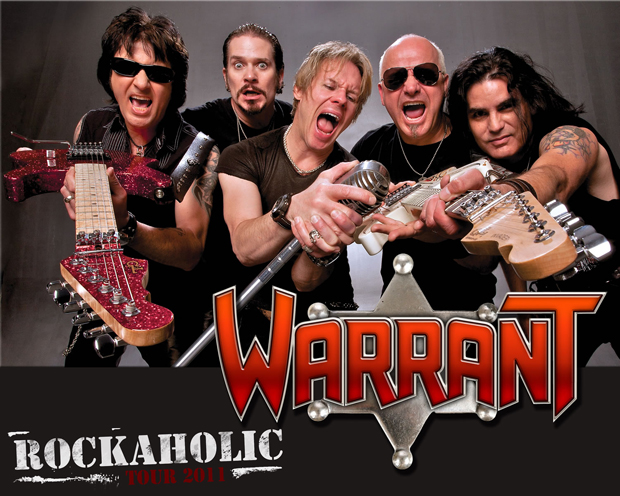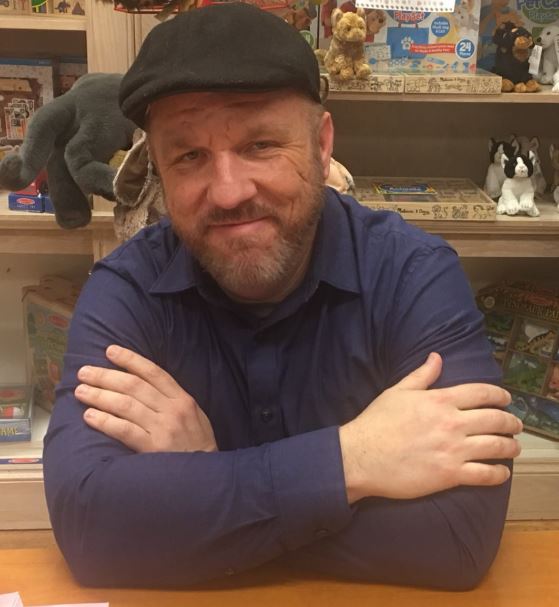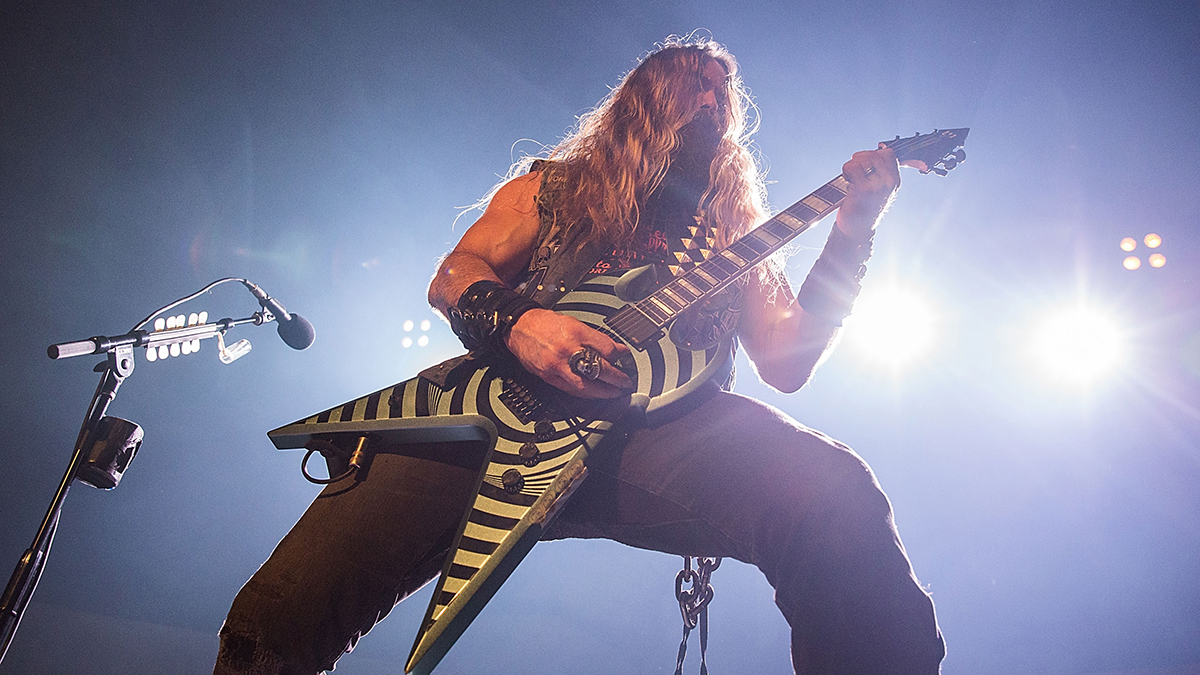Interview: Warrant Bassist Jerry Dixon Discusses the Band’s Legacy and Summer Plans
All the latest guitar news, interviews, lessons, reviews, deals and more, direct to your inbox!
You are now subscribed
Your newsletter sign-up was successful

From his early days playing the LA club circuit, bassist Jerry Dixon saw something in a young, up-and-coming band that piqued his interest.
A late-night discussion with the band’s guitarist, Erik Turner, would eventually kick off a partnership and plant the seed for one of the world's most successful pop metal bands. With the addition of Joey Allen (guitars), Steven Sweet (drums) and singer/songwriter Jani Lane, Warrant was on the road to stardom.
Having been through several trials and tribulations over the years (most notably, the on-again-off-again relationship with Lane, who died in 2011), the band has persevered by adding vocalist Robert Mason (Lynch Mob) to the mix in 2008 and releasing 2011's Rockaholic, an album on which Dixon summed up his experiences best with the track "Life's a Song."
Twenty-five years after those early recording sessions for what became the band's debut album, Dirty Rotten Filthy Stinking Rich, Warrant continue to make music and tour to fans who can't get enough of their melodic, in-your-face, anthemic rock.
Warrant is Jerry Dixon (bass), Robert Mason (vocals), Joey Allen (guitars), Erik Turner (guitars) and Steven Sweet (drums).
I spoke with Dixon about the early days of Warrant — and what the band has planned for the summer.
GUITAR WORLD: This year marks the 25th anniversary of recording sessions for Dirty Rotten Filthy Stinking Rich. What's the first thing comes to mind when you think about those days?
All the latest guitar news, interviews, lessons, reviews, deals and more, direct to your inbox!
It seems like a dream. Almost as if I wasn't really there. That whole era was such a fun time. When you're actually in the moment you're not really sure, until 25 years go by and you realize we were a part of the '80s and that whole Hollywood scene.
Erik [Turner] was already in Warrant when they did one of their first shows, and I was in a band that opened for them. I was 16 at the time, and the band I was in had guys that were already in their 20s, which to me at the time was really "old" [laughs].
After our set was over, I stuck around and watched them play and thought it was great; not only did they sound good, but they were all around the same age as me. In true "Hollywood" fashion, we ended up at an after-party and I met Erik and told him I'd love to be in his band. He said they had just gotten a bass player and that he was "kind of" in the band, but only did one show with them. I told him, "Nah, we can do better than that." So I tried out and that was the first step of many.
Did you guys do a lot of self-promotion?
Back in the early days, we were all promotional gurus. Other bands would look at us and laugh, but we learned early on that there was always the undercurrent business part of being in a band that a lot of the other bands lacked. We worked hard to get people through the door, shopping the band around and trying to get a record deal. Once we finally got signed, that weight was lifted and it was game on: tour buses and rock and roll touring for the next 10 years. For me, to be that young and go out on tour was amazing. I was 18 when we did the first record, and by the time we left for the road, I had just turned 19.
What were some of those early songwriting sessions like with Jani?
We already had about 15 original songs when Jani came into the band. I remember one day he came in and said, "Hey, check out this song!" Then he'd sit down and play "Heaven" on the acoustic guitar. Then the next week, he'd come in again and say, "Check this one out!" And it would be, "Down Boys." We learned quickly that Jani was a talented performer and a great songwriter.
What's the story behind the Cherry Pie album?
We never had any intention of calling it
Cherry Pie
. In fact, we had originally wanted the sound of the album to be a little heavier; more like an
Uncle Tom's Cabin
. But we had recorded the entire album when the president of the record company told us that it was great, but we just needed one more big rock anthem. A "We Will Rock You," big gang-vocal-type song.
We had already packed up and loaded out because the record was done, but Lane said, "Well, let me go mess around with something." A few days later, we all got together and he brought in
Cherry Pie
. We went back in, set up and recorded it, and the next thing you know, everything became
Cherry Pie.
What did you love most about the hair metal days?
I loved everything about the days. It was one of the only times in history when you could literally walk down the street and see Warrant; then walk next door and see Poison; then walk down the street a little more and see Guns N’ Roses; then turn the corner and see Mötley Crüe. That was just a normal Friday night back then [laughs].
What other projects are you involved with?
Erik and I started a TV and film placement company. It's an outlet for us to write and do other types of music and is doing really well.
Tell me about why you wrote "Life's A Song" for the 2011 Rockaholic album.
I wrote that song shortly after Robert [Mason] joined the band. When Robert would come to LA, we would rehearse in the same room where we had rehearsed the year before with Jani. One day, Joey [Allen] and Robert were doing a photo shoot and I was looking at Robert and thinking about Jani and everything else and just thought to myself, "You know, life really is just a song." That's where the idea for the title came from and I grabbed the acoustic. The thing is, you can't just sit down and say that you're going to write. Songs need to go through you.
What are some of your best memories of Jani?
I just moved recently and found a bunch of old pictures. The best memories are the ones of the early Jani. When the evilness, egos, fame and all that other bullshit hadn't shown up for us yet. That's when everything was cool.
Do you have a few rock and roll stories to share?
The stories don't usually come as one big one. It's a culmination of all of the Spinal Tap moments that happen. Like getting lost and not being able to find the stage. One day we were at an arena and got locked out of the bus. A bunch of fans somehow found us and we needed to get a ladder and climb through the back window. Then there was the time we left Erik in Joplin, Missouri. Thank God he had his wallet because he didn't have any shoes on or a jacket in the middle of the night and had to get a ride from a farmer. Back then, there were no cell phones, so if you got off the bus and the driver didn't know, he'd just haul ass and no one would know you were gone until the morning [laughs].
What are Warrant tour plans like for this year?
We've actually been toying with the idea of performing the
Cherry Pie
album in its entirety this summer. There are a lot of cool songs on that album that would flow really well, and some that we haven't played that much. I think that when we headline this summer, that's the plan.

James Wood is a writer, musician and self-proclaimed metalhead who maintains his own website, GoJimmyGo.net. His articles and interviews are written on a variety of topics with passion and humor. You can follow him on Twitter @JimEWood.
James is a guitarist and freelance writer who's interviewed some of the biggest names in music. He is the author of four books and his writing credits include work for Guitar World, AXS and Yahoo! as well as for his hometown newspaper where he writes on a variety of topics with both passion and humor. As a guitarist, he's performed everywhere from local bars and nightclubs to some of the biggest stages in front of thousands of music fans.

